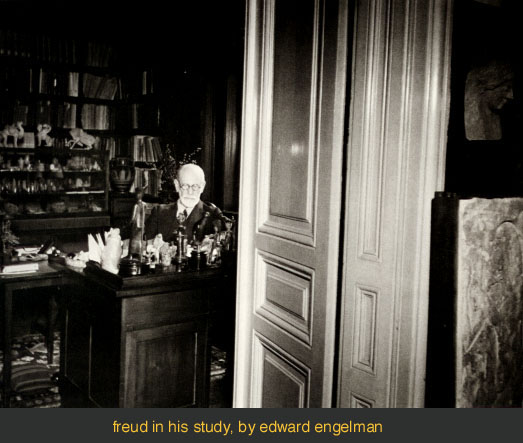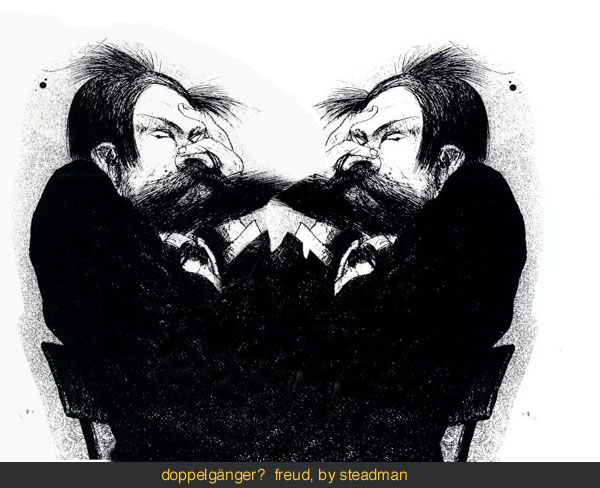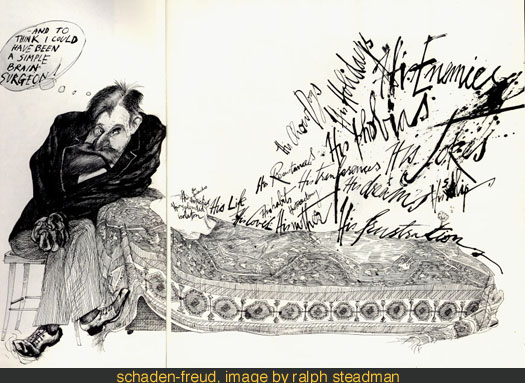 syllabus syllabus
 unit
one unit
one
 Bosch
Bruegel
Arcimboldo
Friedrich
Fuseli
Grandville
Goya
Grünewald
.....
Hoffmann
Poe
Freud
unit
two
unit
three Bosch
Bruegel
Arcimboldo
Friedrich
Fuseli
Grandville
Goya
Grünewald
.....
Hoffmann
Poe
Freud
unit
two
unit
three
|
|
|
|
....Hoffmann is in literature the unrivaled master of conjuring up
the Uncanny. His Elixire des Teufel’s (The Devil’s Elixir) contains
a mass of themes to which one is tempted to ascribe the uncanny effect
of the narrative; but it is too obscure and intricate a story to summarize.
Towards the end of the book the reader is told the facts, hitherto concealed
from him, from which the action springs; with the result, not that he is
at last enlightened, but that he falls into a state of complete bewilderment.
The author has piled up too much of a kind; one’s comprehension of the
whole suffers as a result, though not the impression it makes. We must
content ourselves with selecting those themes of uncanniness which are
most prominent, and seeing whether we can fairly trace them back to infantile
sources. These themes are all concerned with the idea of a double in every
shape or degree, with persons, therefore, who are to be considered identical
by reason of looking alike; Hoffmann accentuates this relation by transferring
mental processes from the one person to the other—what we should call telepathy—so
that the one possesses knowledge, feeling, and experience in common with
the other, identifies himself with another person, , so that his self becomes
confounded, or the foreign self is substituted for his own—in other words,
by doubling, dividing, and interchanging the self. And finally there is
the constant recurrence of similar situations, a same face or character-trait,
or twist of fortune, or a same crime, or even a same name recurring throughout
several successive generations.
The theme of the double has been very thoroughly treated by Otto
Rank. He has gone into the connections the double has with reflections
in mirrors, with shadows, guardian spirits, with the belief in the soul
and the fear of death; but he also lets in a flood of light on the astonishing
evolution of this idea. For the double was originally an insurance against
the destruction of the ego, an “energetic denial of the power of death,”
as Rank says; and probably the immortal soul was the first double of the
body. This invention of doubling as a preservation against extinction has
its counterpart in the language of dreams, which is fond of representing
castration by a doubling or multiplication of the genital symbol; the same
desire spurred on the ancient Egyptians to the art of making images of
the dead in some lasting material. Such ideas, however, have sprung from
the soil of unbounded self-love, from the primary narcissism which holds
sway in the mind of the child as in that of primitive man. And when this
stage has been left behind, the double takes on a different aspect. From
having been the insurance of immortality, he becomes the ghastly harbinger
of death. |

|


